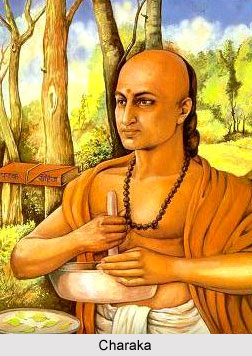 Agnivesha Tantra was written by sage Agnivesha and was compiled, modified and edited by Charaka, the famous physician of ancient India. Agnivesha Tantra is the compilation of the teachings of Ayurveda. It is thought that Sage Bharadwaja transferred the knowledge to Agnivesha.
Agnivesha Tantra was written by sage Agnivesha and was compiled, modified and edited by Charaka, the famous physician of ancient India. Agnivesha Tantra is the compilation of the teachings of Ayurveda. It is thought that Sage Bharadwaja transferred the knowledge to Agnivesha.
Charaka modified the Agnivesha Tantra in his own way with his own thoughts that put a newer view to the script. Charaka also added newer material regarding the Ayurveda. Thus Charaka samhita is thought to be the modified form of the teachings of Agnivesha. Agnivesha grasped the knowledge of Ayurveda from sage Bharadwaj and then compiled it in Agnivesha Tantra. Thus Agnivesha tantra is considered as the very first book of Ayurveda in ancient India.
This article is a stub. You can enrich by adding more information to it. Send your Write Up to content@indianetzone.com




















